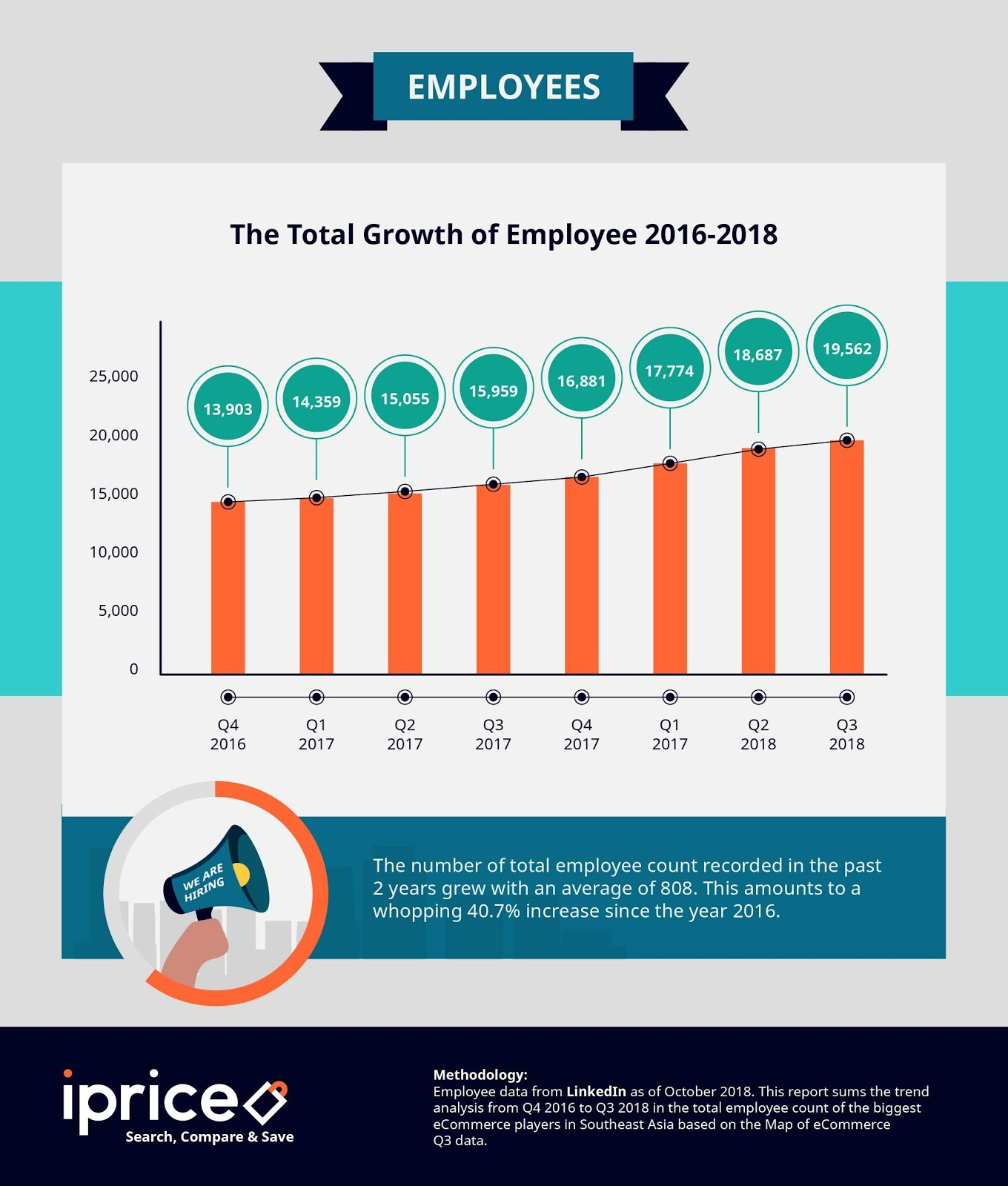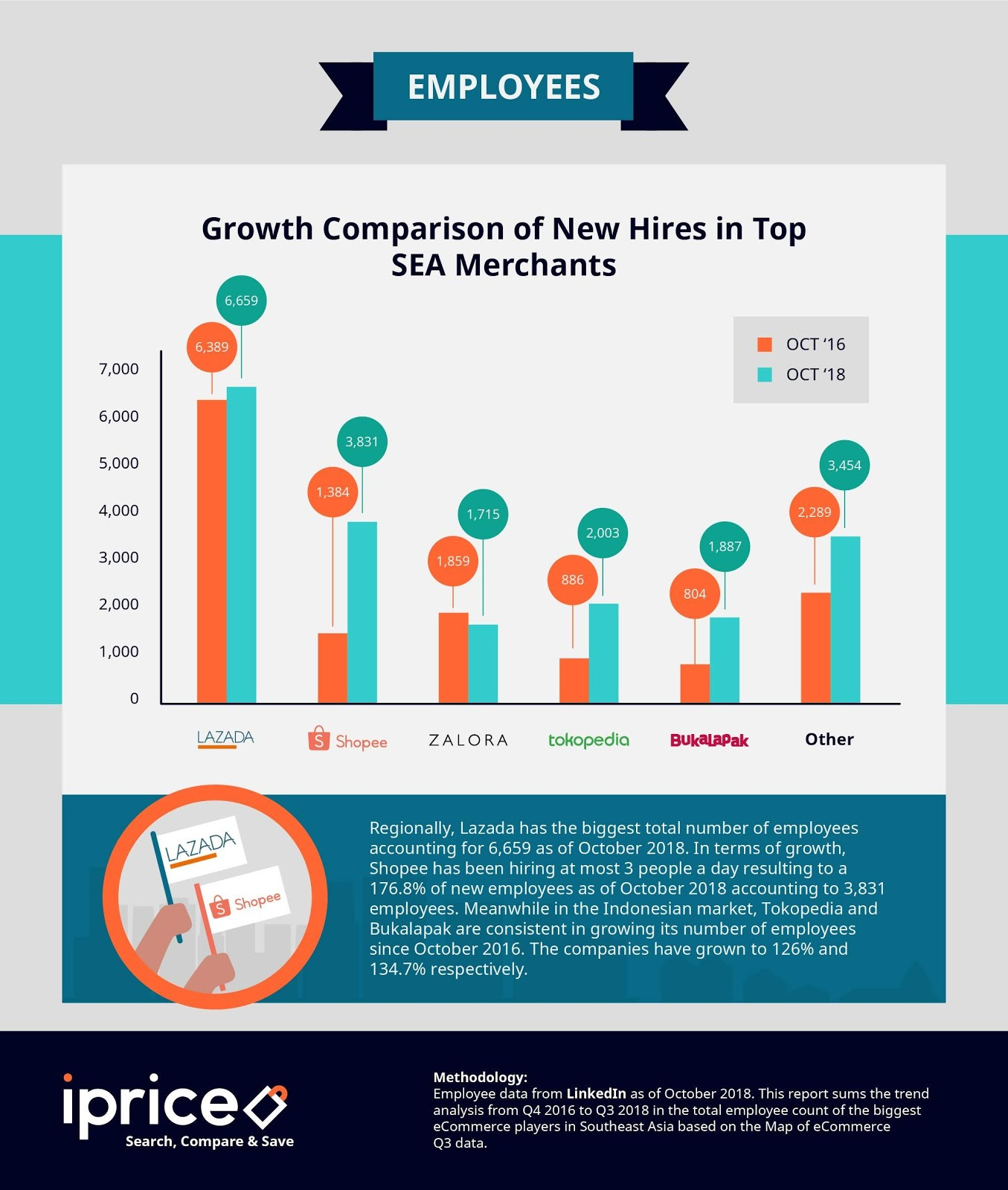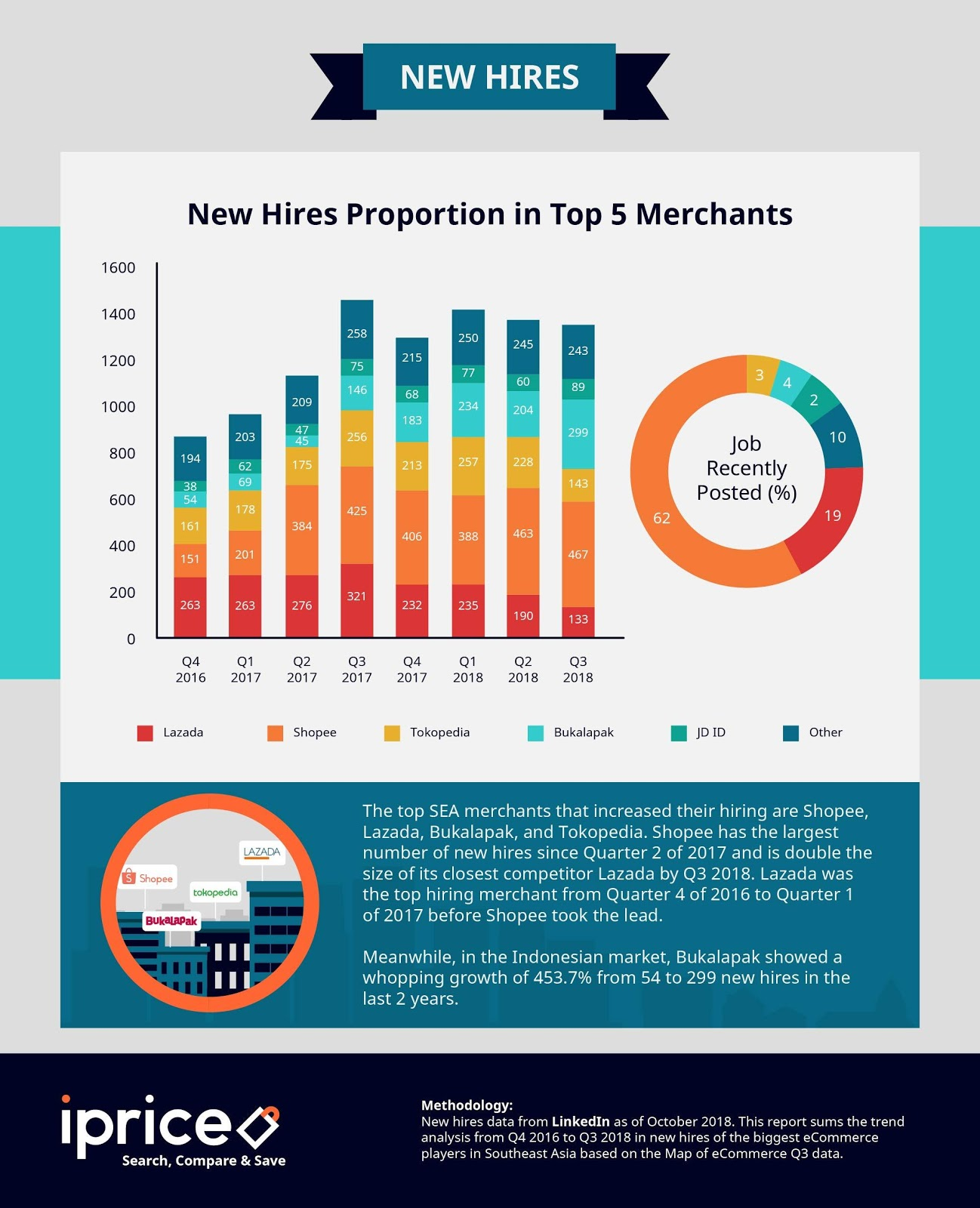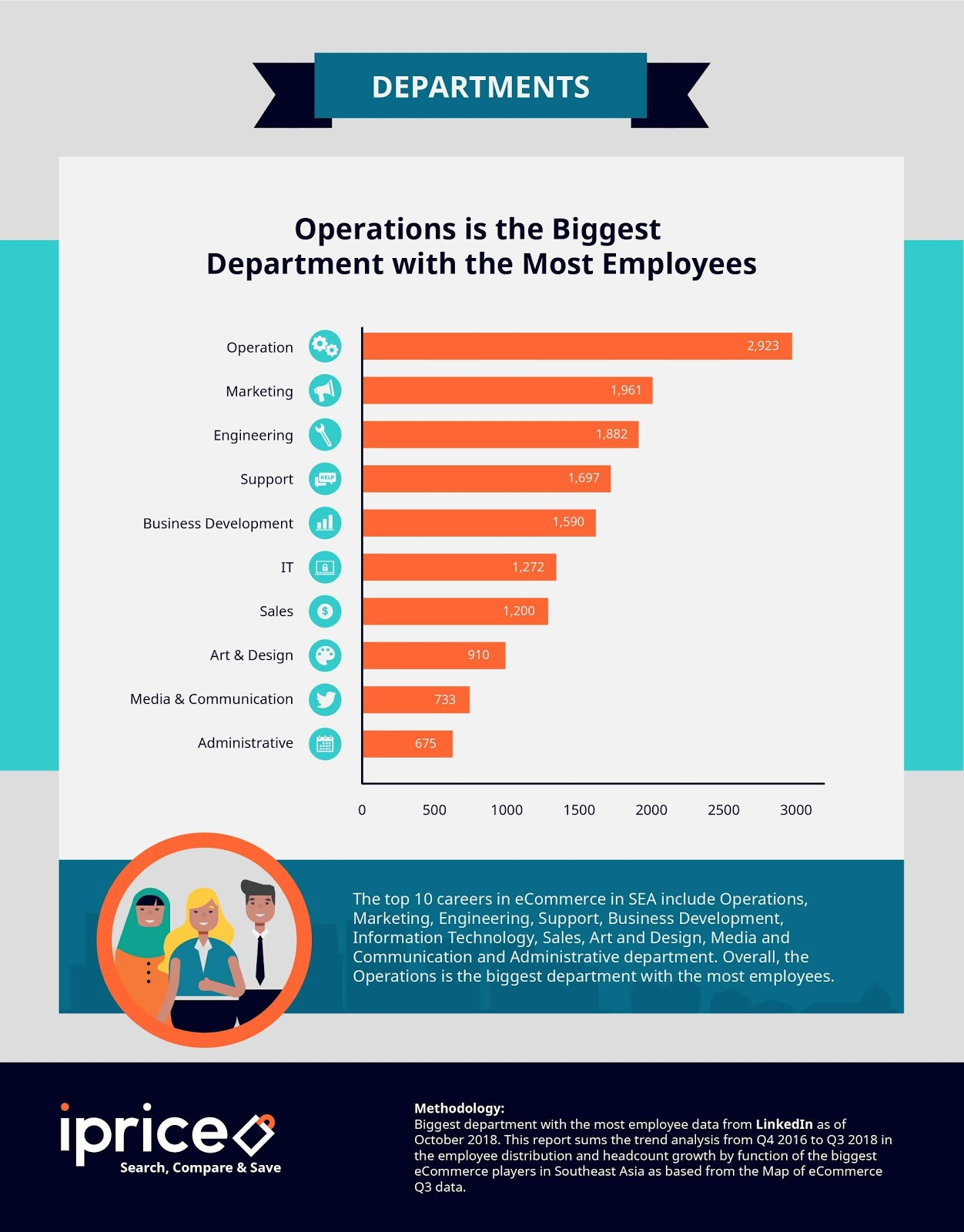The Growing Demand for eCommerce Talent in Southeast Asia
By Jeremy Chew from iPrice · 8th January, 2019

Table of Contents
This blog was updated on 16 April 2025, for more information connect with our team: https://www.easystore.co/contact
The Growing Demand for eCommerce Talent in Southeast Asia
In November 2018, Google and Temasek updated their industry study, projecting that eCommerce in Southeast Asia (SEA) would be worth US$240 billion by 2025.
This updated estimate added US$40 billion to their previous forecast, thanks to rapid growth in sectors like online vacation rentals, food delivery, subscription music, and video-on-demand services.
The same study predicted that the internet economy in SEA would reach US$72 billion in Gross Merchandise Value (GMV) by the end of 2018, with eCommerce accounting for the largest portion, valued at around US$102 billion by 2025.
Achieving this, however, would require a significantly larger pool of internet economy professionals to meet the growing industry demands.
To evaluate this potential, iPrice conducted a study to analyze eCommerce employment trends and assess whether SEA's current workforce is equipped to support this projected growth.
The study was based on employee data and hiring patterns of leading eCommerce players in Southeast Asia, using data from LinkedIn and the Map of Ecommerce Q3 report.
It covers Thailand, Singapore, Malaysia, Indonesia, Vietnam, and the Philippines.
Rapid Workforce Growth Surpasses Industry Projections
Between Q4 2016 and Q3 2018, the workforces of Southeast Asia's top eCommerce companies grew by an average of 808 employees per quarter.

This growth rate significantly exceeds the 10% annual workforce growth predicted by Google and Temasek as necessary for the internet economy to reach its full potential — a promising sign for the region, especially given the common struggle digital companies face in sourcing qualified talent.
A similar survey by ecommerceIQ highlighted recruitment challenges, with a Facebook Indonesia spokesperson commenting:
“There are a lot of great candidates out there. The issue is, sometimes the recruitment process and interview questions are ridiculous, eliminating the right candidates too early.”
An example of success is Shopee, whose workforce grew 176% over two years, expanding from 1,384 to 3,831 employees by Q3 2018.
This equates to an average of three new hires per day.
Shopee’s aggressive hiring strategy was fueled by substantial funding, with its parent company SEA (formerly Garena) raising US$720 million between 2016 and 2018, followed by an additional US$575 million after listing on the New York Stock Exchange in 2017.

Other major eCommerce players such as Lazada, Tokopedia, and Bukalapak also experienced workforce growth, with Zalora being the exception, seeing a slight reduction from 1,859 to 1,715 employees.

Despite Shopee’s rapid rise, Lazada remained the largest employer in the region, with 6,659 active employees by Q3 2018.
Lazada maintained an active recruitment drive, accounting for 19% of total job vacancies posted by top eCommerce players, while Shopee dominated with 62% of vacancies.
The Urgent Need for eCommerce-Specific Talent
Our study revealed that operations and marketing departments housed the highest number of employees, followed by engineering and IT roles.
However, hiring professionals in technical areas like software engineering, data science, digital marketing, and product marketing remains a key challenge.
The rapid expansion of the eCommerce industry means that the region lacks a ready supply of skilled talent in these areas.

According to Google and Temasek, this shortage of eCommerce-specific expertise is one of the most critical unresolved issues for the industry.
As a short-term solution, companies often turn to foreign professionals, but this isn’t sustainable — most expatriates are on short-term contracts, and few stay beyond five years in developing countries.
The long-term solution lies in developing local talent.
Digital companies need to rethink traditional recruitment practices and adopt more effective, modern hiring approaches.
A Facebook Indonesia spokesperson emphasized the need to:
“Move away from conventional hiring processes and prioritize self-motivated candidates with strong problem-solving and conflict resolution skills, even if they lack industry-specific experience.”
In addition, education institutions play a critical role in addressing deeper issues like job-hopping tendencies, a lack of ownership, and underdeveloped strategic thinking among graduates.
Market researcher Cynthia Luo noted:
“Fresh graduates tend to lack basic skills like ownership, professional communication, and stress management, and are often overwhelmed by fast-paced, KPI-driven digital startups.”
Unlike in North America, where young people typically gain work experience through part-time jobs or internships before entering higher education, many SEA graduates enter the workforce with little to no practical experience.
Bridging the Gap Between Education and Industry
To build a sustainable talent pipeline, the next generation must recognize the vast career potential within the eCommerce and digital economy sectors.
This requires active collaboration between educators and industry leaders to inspire and guide students toward thriving careers in this fast-growing field.
Through joint initiatives, workshops, internships, and exposure programs, both sides can work together to shape a workforce that’s equipped not just with technical skills but also with the adaptability, resilience, and strategic mindset needed for success in the digital economy.
This expert article is provided by iPrice Group.
Make Customers Love Buying From You
EasyStore empowers your brand to prioritize customers and enhance their experience, creating a unified customer experience (UCX) that makes customers love buying from you.
Over 50,000 brands have grown their businesses by embracing unified customer experiences (UCX) strategy through EasyStore across multiple sales channels - online store, retail outlets, marketplaces, and social media, ensuring consistency in product and service offerings for a seamless shopping journey.
Embrace UCX and redefine your business success today
Discover how UCX can elevate your customer engagement with a truly unified journey for your customers, streamline operations, and drive growth across all channels.
Contact Us




